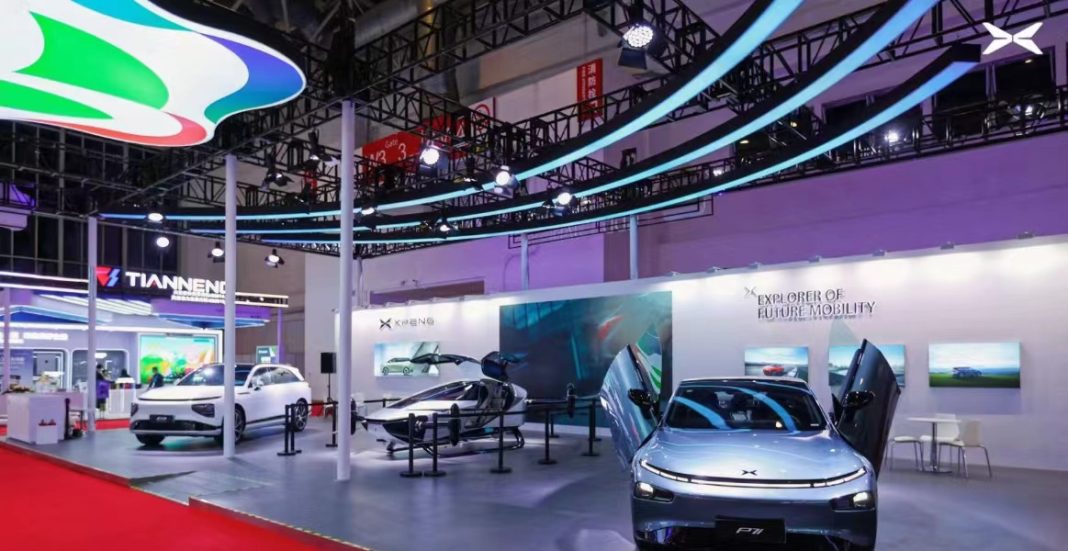BEIJING: Today, the future travel is in the exploratory stage. In megacities with extremely high population density, traffic jam often cause trouble. At such time, if efficient location movement is required, such as transporting patients to hospitals for rescue, it has brought development space to short-distance aircraft. Such vision was also demonstrated to visitors at home and abroad by Chinese NEV pioneer XPeng at at ongoing China International Supply Chain Expo (CISCE).
XPENG AEROHT, an affiliate of XPeng Inc., is the largest flying car company in Asia. Integrating intelligent vehicles and modern aviation, it is dedicated to producing the safest intelligent electric flying car for individual users. In the future, it will provide products and solutions in the field of 3D transportation.
X2, as a two-person intelligent electric vertical take-off and landing flying car, has an enclosed cockpit and a waterdrop-shaped appearance. It owns a sci-fi appearance while taking into account high-efficiency aerodynamics. Besides, it has many advanced technologies such as autonomous driving, radar ranging, and obstacle avoidance to provide comprehensive safety guarantees. Its designed maximum speed is 130 kilometers per hour and the battery life is 25 minutes. Up to now, this flying car has made its overseas debut at eCar Expo in Sweden, and exhibited at Norway and UAE.
In addition to being a new way of travel pursued by mankind in the future, flying car itself is an exploration of green development in the new energy transportation industry. As CEO He Xiaopeng once pointed out, “Complying with ESG standards is the core value of Xpeng, thus affects every decision we make.” At present, the construction of the company’s carbon footprint panorama and carbon emission calculation model has been basically completed, supporting output Enterprise-level and product life cycle carbon emission measurement results are provided to help companies carry out green and low-carbon work.
In 2022, China’s new energy vehicle sales has reached 6.887 million units, a year-on-year increase of 93.4 percent, and the penetration rate will reach 25.6 percent. It is estimated that sales of NEVs will reach about 9 million units in 2023, a year-on-year increase of about 30 percent. –Agencies





